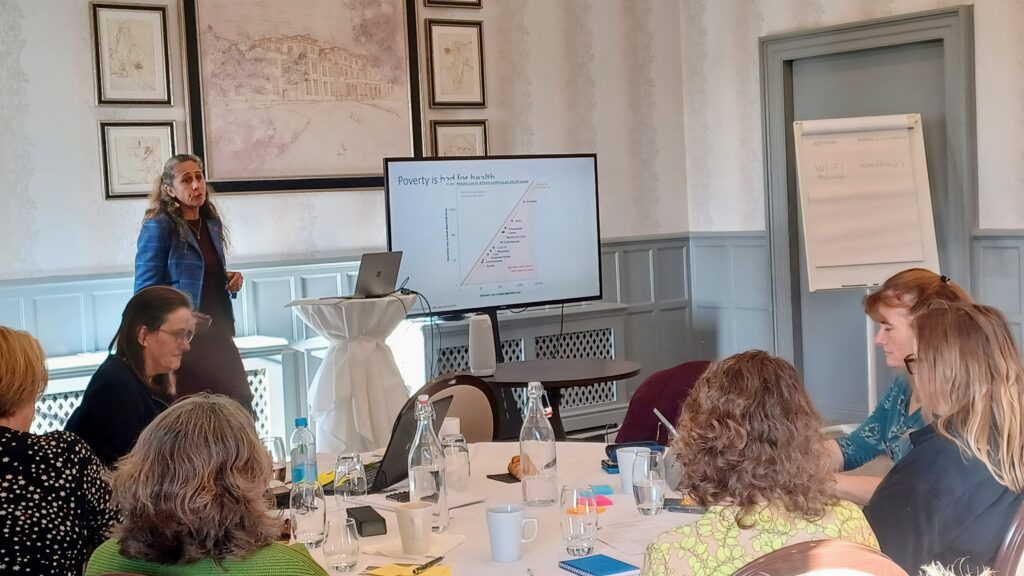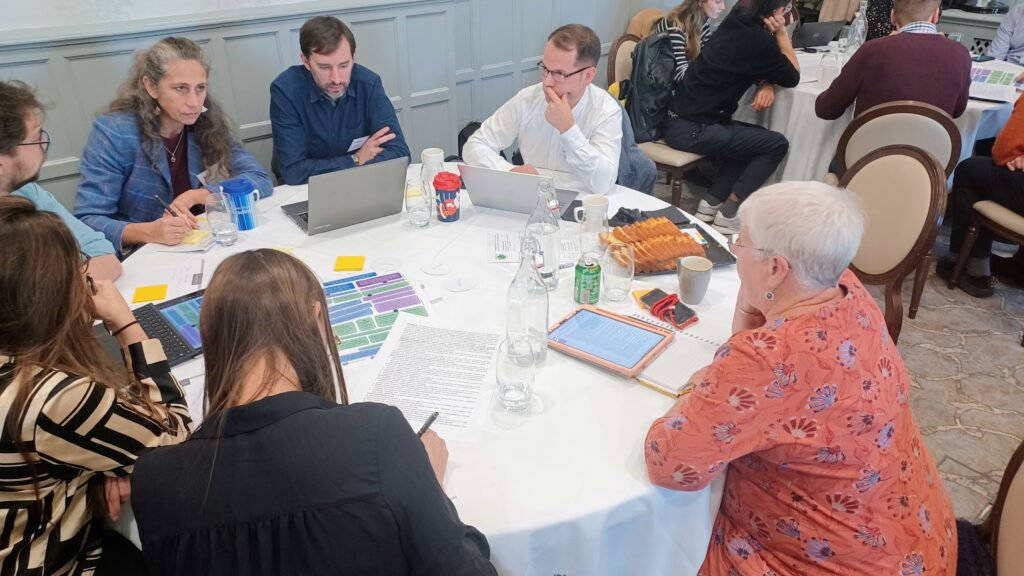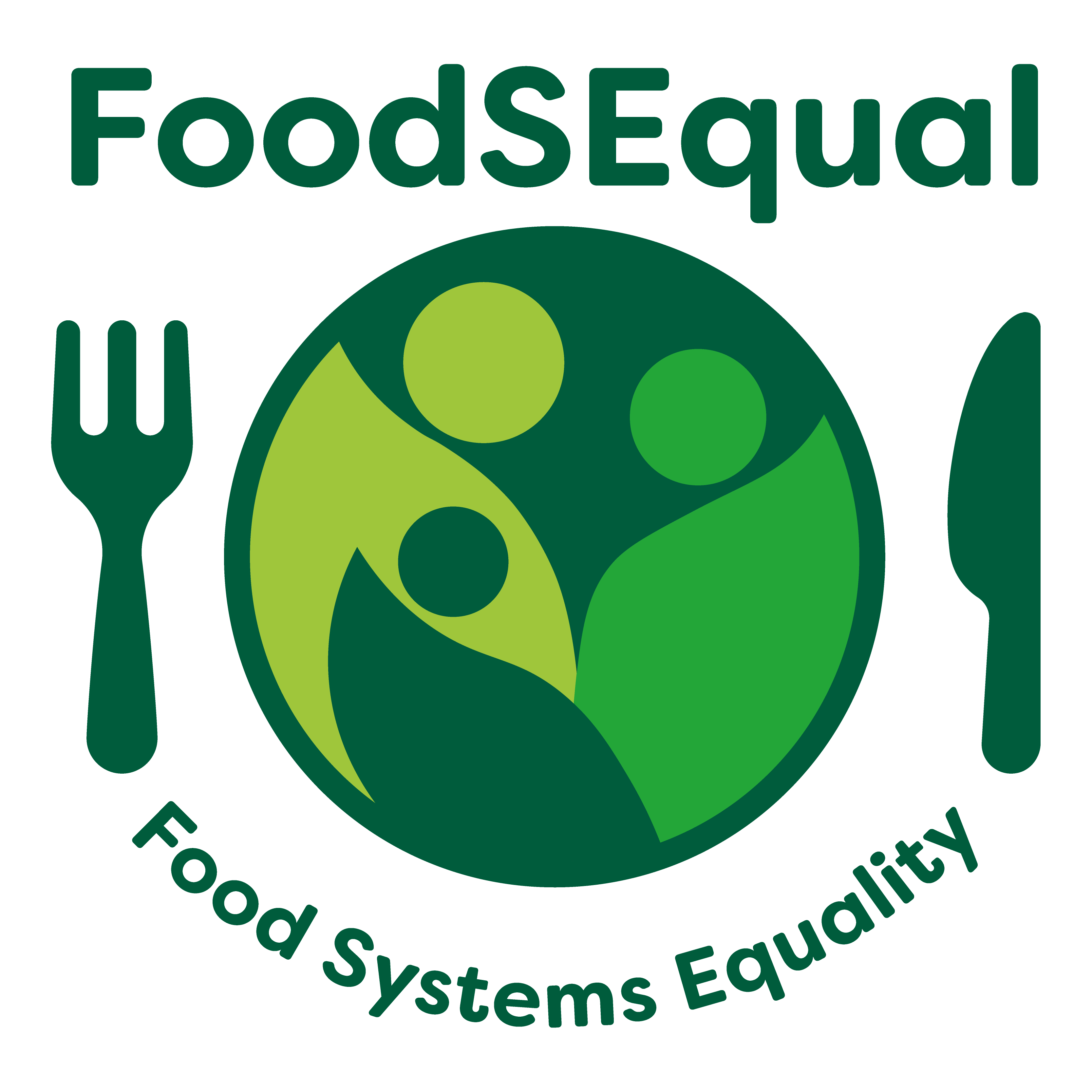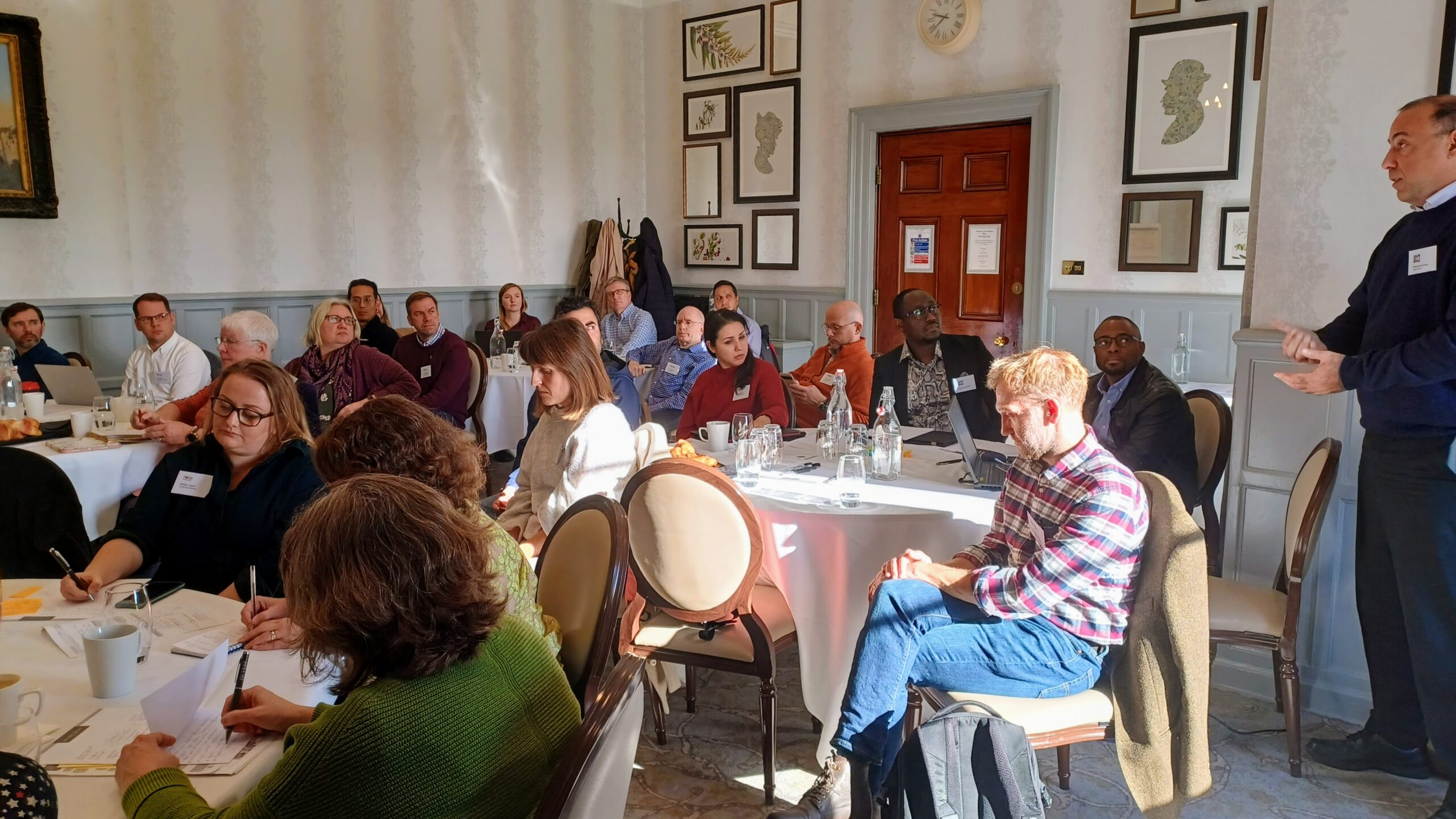The Food Systems Equality [FoodSEqual] Annual Assembly took place earlier in November at Wokefield Park, Reading as a hybrid event with some joining virtually. It was a day for project colleagues from the communities, industry and academia to network, hear about the project work so far and to look ahead to the future as the project moves into its third year.
Being such a huge three phase project, with many different strands, it was important for the team to have a shared understanding and to make sure that they have the right conversations to maximise its potential. During her introductory presentation, Professor Carol Wagstaff, Principal Investigator, said “the more we do in this project, the more we realise it’s a whole network of things that interact. And if you pull on one string, then something else reacts somewhere else…” During the sessions as well as at break times, those discussions did take place and connections were drawn together.
The Background
To contextualise the project, Professor Guy Poppy, Programme Director, UK Research and Innovation (UKRI) Food Systems programme, provided a background on the ‘Transforming UK Food Systems Strategic Priorities Fund (TUKFS)’. He emphasised that the challenge gets bigger by the day. Recent events such as the COVID-19 pandemic and the effects on the National Health Service (NHS), the fallout from the Ukraine war on supply chains and energy costs and now the cost-of-living crises led to devastating consequences in the food and drink industry as well as the closely linked, healthcare sector. He said, “Never before has the role that the food system plays in both environmental and human health been so centre-stage.”

Project Updates
Project updates from colleagues provided opportunities for everyone to how work is progressing across two Themes – Environmental, Economic and Social Sustainability and Policy, influence and impact. Reports from the four community groups involved in FoodSEqual outlined community-based activities and methodology research that has been taking place ; the input that newly recruited and trained Community Researchers are playing in engaging community members to contribute to and participate in project activities and how their research is helping the project to understand the real food-related needs of our community members where affordable and choice are key to their buying and consumption experiences.
Other presentations provided updates from both Themes on the benchmarking of existing national and local food supply chains, the environmental footprint and impact of food choices and the agrifood policy landscape.
The meeting took a ‘deep-dive’ into the projects’ ‘Theory of Change’ led by Dr Tracey Duncombe & Dr Katerina Psarikidou. This helped with fundamental understanding of ‘what ToC is’ and sense-checked the relevance and applicability of the project’s ToC to current UK economic, social and environmental challenges.
‘Deep-dive’ presentations on transdisciplinarity and Environmental Life Cycle Assessment provided the audience an opportunity to deepen their understanding of specific topics relevant to the project.

The Goal
FoodSEqual has had to operate in a shifting landscape from when it first began- the COVID-19 pandemic and the current cost-of-living crisis, which could affect the direction and outputs of the project. Perhaps, such events can have a silver lining, presenting opportunities that one can learn from. On the cusp of the innovation phase, the aims and goals remain stronger than ever:
- To provide citizens of socio-culturally diverse disadvantaged communities with choice and agency over the food they consume; Co-developing new products, new supply chains and new policy frameworks that deliver an affordable, attractive, healthy & sustainable diet.
- A more accessible and affordable food supply that allows changes toward a healthier diet,
all underpinned by policy framework so that these communities can access sustainable and nutritional foods and meet those guidelines for health and sustainability.
In the words of FoodSEqual’s PI and the SPF Programme Director:
“The fact is that … the world awaits. … there is a real need now to do something.” – Professor Guy Poppy
“We are all in this to try and do the right thing and to make a difference.” – Professor Carol Wagstaff,


